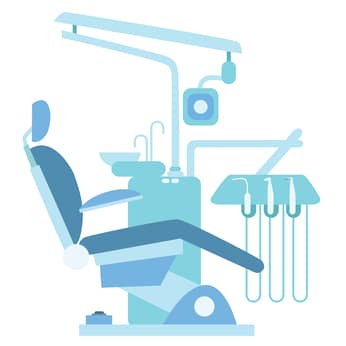In Australia, dental fees are not subsidised by the Federal Government, as in the case of doctors’ fees and Medicare. In addition, there is no industry-standard fee schedule when it comes to dentistry. Fees vary from dentist to dentist, set by the owner of each practise to cover their own operating costs, just as any other small business owner would do. Industry experts have estimated that as much as 80% of all dental fees actually go towards overhead costs, not into the pocket of your dentist. Given that there is no government subsidy, many people opt to take out dental insurance to help cover the cost of maintaining healthy teeth and gums.
Why Buy Dental Insurance?
 Many people view dental insurance as a luxury at best, opting instead to take out limited health insurance, with few additional extras. And it’s no wonder; these days the bills just seem to pile up. However, when you consider some of the average prices for common dental procedures, dental insurance can quickly become a necessity, particularly if an unexpected toothache hits you.
Many people view dental insurance as a luxury at best, opting instead to take out limited health insurance, with few additional extras. And it’s no wonder; these days the bills just seem to pile up. However, when you consider some of the average prices for common dental procedures, dental insurance can quickly become a necessity, particularly if an unexpected toothache hits you.
For instance, a typical check-up at the dentist costs around $100. If you need X-rays, then you will need to add an additional $100. If a clean and scale is needed, then it is likely that the cost will increase. As with any service provider, the more services you need, the more cost involved.
Tips for Taking Out Dental Insurance
When you take out health insurance that includes coverage for dental fees, make sure that you keep in mind:
- Each and every health fund in Australia is allowed to set the level of rebates it will pay for each type of treatment. These rebates are based purely on the commercial requirements of each individual health fund, and are not regulated or standardised by an industry body.
- Shareholders own some health funds. In these instances, the objective of the health fund is both to cover and provide rebates to its members, and to make profits for their shareholders. These two objectives can sometimes be seen as competing interests.
- Oftentimes, the rebates that are payable on dental fees by health insurance funds do not cover more than 60% of the upfront cost. In many cases, rebates are actually less than half the cost of dental procedures, particularly when it comes to complex services like root canal treatment.
- Picking a plan is a very personal undertaking. What works best for one person, may not work at all for you. It is important and, above all, smart to shop around when it comes to dental insurance. Take a look at different policy options, especially if you are buying the insurance independent of an employer. Important things to consider include:
- Price: obviously, this is a very important factor when it comes to choosing any kind of insurance. Everyone wants to see some kind of return on their investment. So, when choosing insurance, you should carefully weigh up the cost of the insurance itself, versus the likely refund rate. On the upside, dental insurance tends to be covered as an extra in most health insurance plans, making it slightly more cost effective.
- Items covered: go through your premium with a fine tooth comb, and make sure you know exactly what it is you’re covered for. For instance, if you’re likely to need orthodontics, then make sure they are included in your plan. Read the fine print. If something isn’t clear, then ask!
- Dentists covered: if you don’t have a regular dentist, then this consideration might not matter so much. But, if you do, then make sure your favourite dentist accepts payment via your health fund. Most reputable dentists will accept payment via all the big, reputable funds; we certainly do.
- Limitations: some health insurance policies cap the amount of coverage to which you are entitled at a certain point, annually. It’s always sensible to know what your coverage entitlements are, particularly if you’re likely to see a big dental bill within 12 months.
For many people, the rebates offered by dental insurance may go a long way in offsetting the costs involved with more expensive, extensive procedures, such as orthodontics or root canal treatment. However, dental insurance may not represent value for money, or return on investment, when it comes to simple, routine dentistry check-ups.
If you are uncertain about your dental insurance or health insurance entitlements, then be sure to contact the fund directly. After all, you’re paying for a service and you deserve to have all the facts and figures you need.
The Camberwell dental team, always endeavours to keep its fees as low as possible, while still providing the highest standards of care possible. And, we firmly believe that the absolute best way to lower your dental costs is to prevent decay and gum disease in the first place. You can do this through regular, preventive check-ups, which is a relatively inexpensive way to avoid the much higher costs associated with larger procedures.
